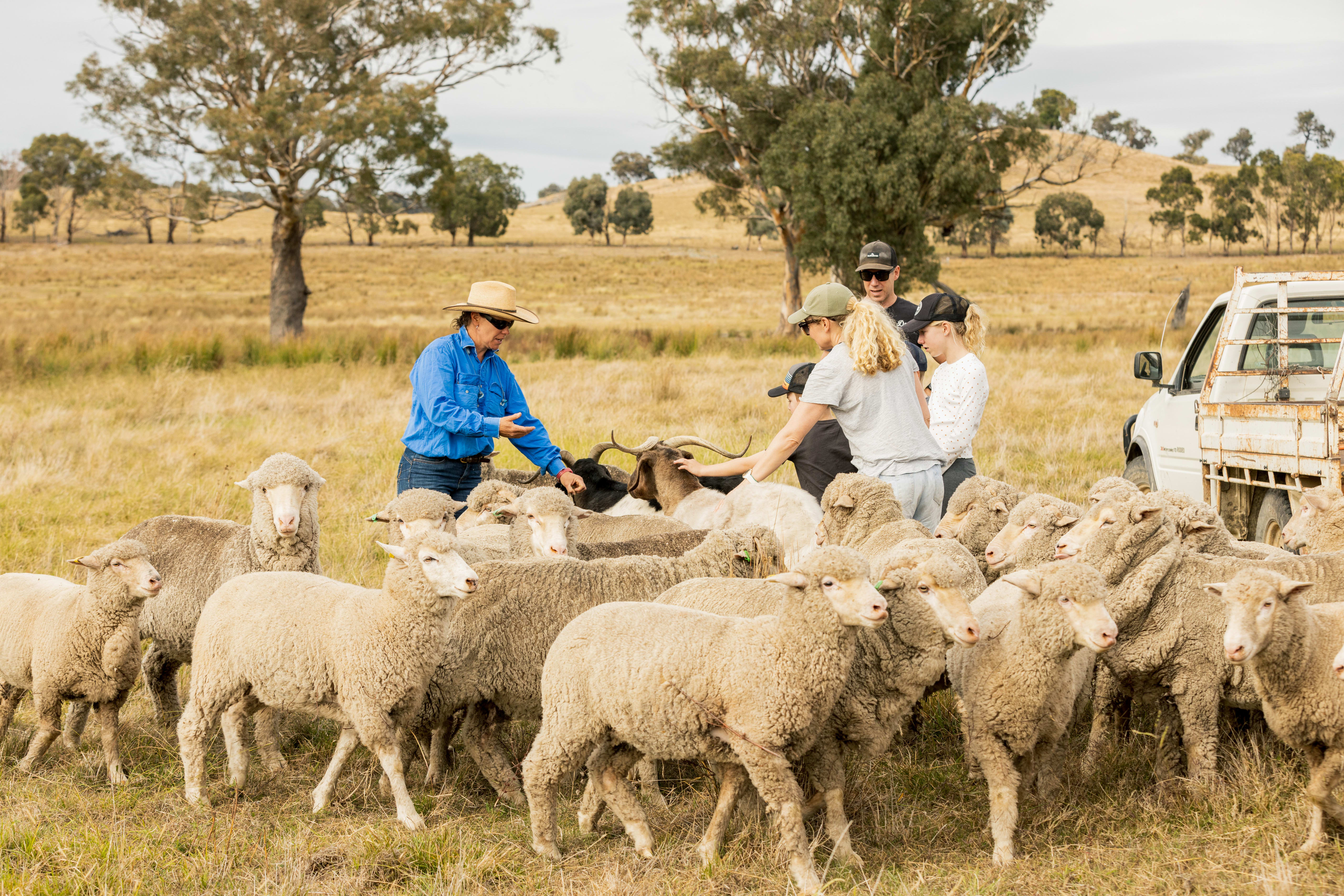Agritourism Reforms to Make it Easy for Working Farms to Welcome Guests


y3vn8kfdvrgua7n7uawo
Tourism and agriculture are the perfect pairing, providing new revenue streams for primary producers with a story to tell and land to share.
New South Wales (NSW) introduced changes to the state’s planning system to give farmers an automatic right to welcome paying guests. The changes are an open invitation to NSW’s 25,000 primary producers to give tourism a go and get a piece of the estimated $18 billion agritourism opportunity. Not only can farmers diversify their income by welcoming guests, but regional communities also stand to benefit as travellers explore regional towns and spend money along the way.
Farms are a popular choice on Hipcamp. People want to experience life on the farm and rediscover where their food comes from. Norm, a Hipcamp Host and a fourth-generation dairy farmer on the the NSW south coast, talked with us about his hosting journey, and his inspiration to build a romantic outdoor bathtub inspired by the much-loved TV drama series McLeod’s Daughters.
“Hipcamp has brought this old dairy back to life. Knowing this place is being used and enjoyed brings me so much happiness.” -Norm from Sapphire Coast Dairy, Greendale, NSW
Is agritourism right for me and my land?
Agritourism is a growing sector because tourists are actively seeking new experiences that connect them to the land and their food. Offering a farmstay experience, like camping, allows farmers to harness this demand and diversify their income. To help farmers understand, plan, and start a farmstay business, we have developed an easy-to-use toolkit with more information.
What is changing?
The NSW Government has introduced a statewide planning policy that adds agritourism as a priority of the state’s planning system. The policy creates an exempt development pathway or automatic right to offer farm stay accommodation, including camping.
While this is an automatic right that doesn’t require council approval, some eligibility requirements and conditions do apply. Councils across NSW are working to streamline the approval process for agritourism proposals, so if you don’t meet the requirements for an exempt development today or would like to welcome more guests than allowed, you can soon apply to do so.
“We’ve overcome bushfires and COVID. I’m pleased to hear about these new regulations.” -Bill from Riverview Farmstay, Narooma, NSW
Who is eligible?
Three key eligibility requirements apply in order to welcome guests without council approval.
- Farms must be ‘working,’ which means the farm is a primary production business for tax purposes (defined by the Australian Tax Office) or categorised as ‘farmland’ by your local council
- Farms must be 15 hectares and larger
- Farms must be zoned as Primary Production (RU1), Rural Landscape (RU2), Primary Production Small Lots (RU4) zones in local environmental plans, and in other zones councils have nominated. You can learn more here.
What conditions apply?
The changes also set out basic conditions and requirements for farms welcoming guests. These include:
- Stays of a maximum 21 consecutive days (per individual)
- A maximum of 20 guests
- A maxiumum of 6 caravans/campervans at a time
- Campers, caravans, and campervans must be self-contained if no toilet facilities are provided.
- For bushfire-prone land, landowners must erect a sign in a prominent position with an evacuation diagram and emergency services contact details.
“I’m a mother of two children, a farmer, caretaker, a mother goose, and just a person having a go out on the land.” -Benita from Sacred Earth Farm, Pumpenbil, NSW
How do I get started?
Landowners across Australia are partnering with Hipcamp to earn extra money by connecting their properties with folks looking to go camping. Hipcamp offers landowners the tools they need to start a farm stay or camping business on their land. It’s free to list your land, and our team is ready to help you start your hosting journey. All you need is an email address and a few photos to get started.
“We’re excited about the new policy that’ll allow more property owners like myself to welcome guests.” -Sue from Mungerarie Farm, Moruya, NSW
Where can I find more information about the changes?
For more specific information about the changes, including the full list of minimum requirements, please refer to the NSW Department of Planning. To find out more from Hipcamp, download our toolkit, visit us, email host@hipcamp-land.com, or call 0488 855 291.
Recent Posts
The Best Places to See Blooming Bluebells in the UK
As springtime hits the UK, the winter blues are replaced with a violet hue of a different kind. A carpet…
Morel Mushroom Hunting Season: The 2024 Camping Guide
Spring is springing. And we all know what that means—the 2024 morel mushroom season is underway. To increase your chances…
Hipcamp Awards 2024: Best RV & Van Spots in the US
To help you find the best camping in the country, each year we compile data from bookings, reviews, and ratings…
Hipcamp Awards 2024: Best RV & Van Spots in Canada
To help you find the best camping in the country, each year we compile data from bookings, reviews, and ratings…
Hipcamp Awards 2024: Best Caravan Spots in Australia
Awards season has arrived! To help you find the best camping in the country, each year we compile data from…
Hipcamp Awards 2024: Best Campervan Spots in the UK
To help you find the best camping in the country, each year we compile data from bookings, reviews, and ratings…